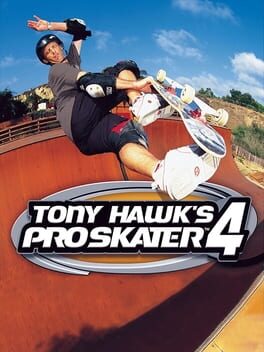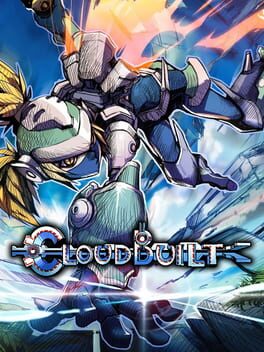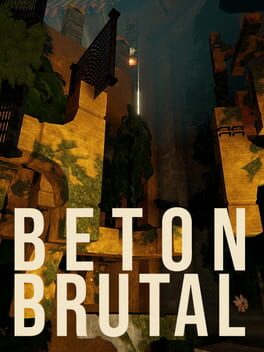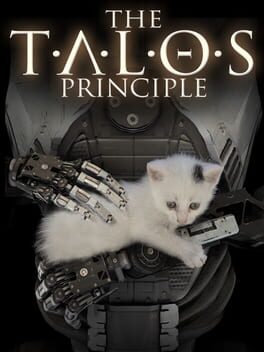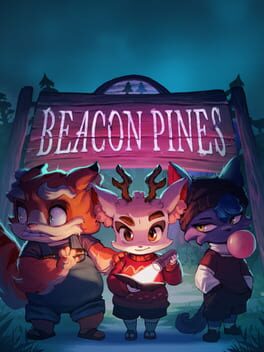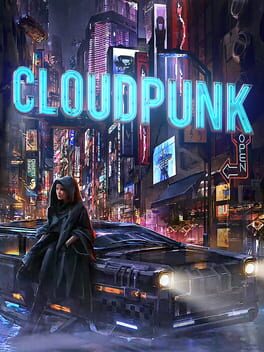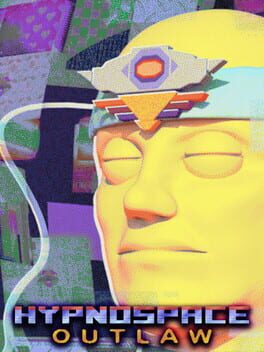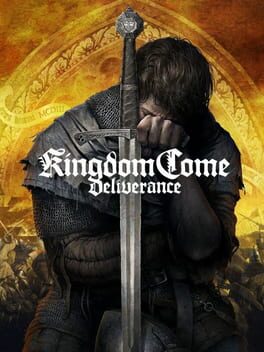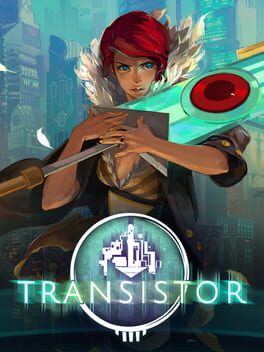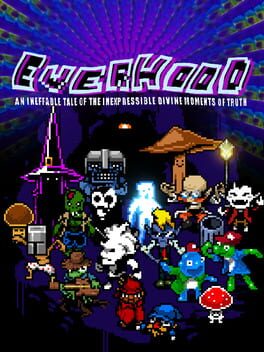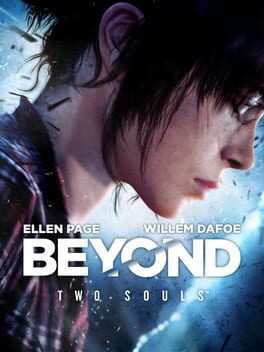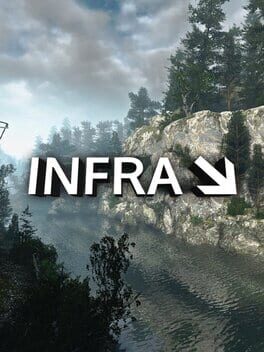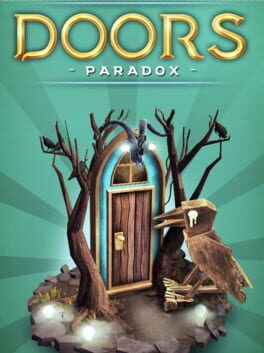TidB
130 Reviews liked by TidB
Ja, es ist der Teil ab dem der Timer gegen die "Open World" Struktur mit freier Missionswahl ersetzt wurde. Plötzlich konntest du nicht mehr SKATE sammeln und dabei deinen Highscore brechen und musstest dich nun dazu entscheiden nun entweder SKATE zu sammeln, ODER den Score zu machen.
Das machte das Spiel deutlich länger, aber... auch deutlich länger. Eine kontroverse Entscheidung, aber... ich mags. Ich mag das Spiel.
Klar, nicht jede Aufgabe ist toll, es gibt sehr viel Filler und Stuff den ich nie machen möchte. Aber abseits von High Scores und Sammel-Aufgaben, gibt es so viele interessantere, spaßigere und abwechslungsreichere Missionen die die Reihe jemals haben konnte.
Außerdem ist das Spiel recht hart. Damals, als Kind hatte mich das genervt und es war auch ein häufiger Kritikpunkt. Aber heute bin ich echt froh mal ein paar echt knifflige Combo-Lines machen zu müssen.
Außerdem ist THPS4 der Teil mit dem die Mechaniken plötzlich richtig gut wurden. Also richtig gut, so in kursiv geschrieben und alles. Die Steuerung wurde präziser, wir haben mehr Moves, alles ist so viel mehr responsive. Hier fing die Reihe an diese übertriebenen Combo-Videos zu bekommen und ich weiß auch wieso.
Auch die Maps sind besser, größer und "dichter" als in den Vorgängern. Mit soooo vielen Lines, mit soooo viel zu entdecken und einem wahnsinnig guten Setdressing. Nicht jede Stage ist großartig, aber allein College und Alcatraz sind zwei der besten Maps die die Reihe jemals hatte und je haben wird.
THPS3 fühlt sich, im Vergleich, wie ein richtiger Inbetween-Teil an, der nicht mehr die heavyness der Ps1 Teile hat, aber auch dieses Level an smoothness nicht erreichen konnte.
Der größte Kritikpunkt an THPS4 ist eigentlich, dass Nachfolger noch mehr Features haben, die hier natürlich in Hindsight bitter fehlen. Keine Wallplants, kein vom-board-absteigen und auch all die Glitches die Tony Hawk ab THUG so viele mehr Layer geben, fehlen natürlich.
Mit THUG aber weiterhin mein Lieblingsteil.
Das machte das Spiel deutlich länger, aber... auch deutlich länger. Eine kontroverse Entscheidung, aber... ich mags. Ich mag das Spiel.
Klar, nicht jede Aufgabe ist toll, es gibt sehr viel Filler und Stuff den ich nie machen möchte. Aber abseits von High Scores und Sammel-Aufgaben, gibt es so viele interessantere, spaßigere und abwechslungsreichere Missionen die die Reihe jemals haben konnte.
Außerdem ist das Spiel recht hart. Damals, als Kind hatte mich das genervt und es war auch ein häufiger Kritikpunkt. Aber heute bin ich echt froh mal ein paar echt knifflige Combo-Lines machen zu müssen.
Außerdem ist THPS4 der Teil mit dem die Mechaniken plötzlich richtig gut wurden. Also richtig gut, so in kursiv geschrieben und alles. Die Steuerung wurde präziser, wir haben mehr Moves, alles ist so viel mehr responsive. Hier fing die Reihe an diese übertriebenen Combo-Videos zu bekommen und ich weiß auch wieso.
Auch die Maps sind besser, größer und "dichter" als in den Vorgängern. Mit soooo vielen Lines, mit soooo viel zu entdecken und einem wahnsinnig guten Setdressing. Nicht jede Stage ist großartig, aber allein College und Alcatraz sind zwei der besten Maps die die Reihe jemals hatte und je haben wird.
THPS3 fühlt sich, im Vergleich, wie ein richtiger Inbetween-Teil an, der nicht mehr die heavyness der Ps1 Teile hat, aber auch dieses Level an smoothness nicht erreichen konnte.
Der größte Kritikpunkt an THPS4 ist eigentlich, dass Nachfolger noch mehr Features haben, die hier natürlich in Hindsight bitter fehlen. Keine Wallplants, kein vom-board-absteigen und auch all die Glitches die Tony Hawk ab THUG so viele mehr Layer geben, fehlen natürlich.
Mit THUG aber weiterhin mein Lieblingsteil.
Cloudbuilt
2014
Was going to go for 100% completion but this one stage has been giving me its hands for over an hour and I was just sitting at the screen going "am I enjoying this challenge or should I just stop playing?"
Anyway other than that quandary I solved, Cloudbuilt is a deceptively competent 3D platformer. Deceptively, in that its initial difficulty gives you such a ridiculous sandbox to exploit to where the base mechanics aren't being tested but by the time you're jumping between challenge maps you're losing your MIND. This is not even mentioning the outright ridiculous amount of tech, of which I can pull off barely a third of. There's so much and it's so crazy to wrap your head around that when I say "barely a third of" I mean "I pulled off the technique but oh hey i'm falling to my death."
The aesthetic and music is also rather nice, although you're better off probably skipping the whole story. It has a cute late 00s edge to it but it doesn't go anywhere that's really worth considering. It's a complete gameplay master work and if you want to throw your head at comprehending all this movement and playing by the skin of your teeth on these scattered cloudscape structures then I absolutely recommend this.
Anyway other than that quandary I solved, Cloudbuilt is a deceptively competent 3D platformer. Deceptively, in that its initial difficulty gives you such a ridiculous sandbox to exploit to where the base mechanics aren't being tested but by the time you're jumping between challenge maps you're losing your MIND. This is not even mentioning the outright ridiculous amount of tech, of which I can pull off barely a third of. There's so much and it's so crazy to wrap your head around that when I say "barely a third of" I mean "I pulled off the technique but oh hey i'm falling to my death."
The aesthetic and music is also rather nice, although you're better off probably skipping the whole story. It has a cute late 00s edge to it but it doesn't go anywhere that's really worth considering. It's a complete gameplay master work and if you want to throw your head at comprehending all this movement and playing by the skin of your teeth on these scattered cloudscape structures then I absolutely recommend this.
Beton Brutal
2023
Beton Brtual is so fucking tedious that even the method of save scumming I used to make it a palatable experience was dull. When I first started playing it, its blend of precision platforming, tightly designed landscapes, and brutalist architecture-inspired art style wowed me. And then I hit a brick wall. And I kept hitting it. And suddenly, the game lost its zing. It became monotonous, a chore to sit through even at the peak of its vertigo-inducing, pants-shitting intensity. I felt I had an obligation to complete it, though; after all, I gave it four stars! In the immortal words of Kent Mansely himself, "This sort of thing is why it's so important to chew your food."
Fundamentally, my biggest issue with Beton Brutal is that it's convinced, no, insistent that forgiving the player for their mistakes is the wrong thing to do. In smaller spaces where the tension in each jump comes organically and doesn't feel contrived in the slightest, it's right. Those four stars I gave it came before I was faced with the wall spike section or the ice area. Even if its challenge remained organic throughout, though, I doubt it would have remained compelling. Without the inch that a proper saving system might give you, the emotional agony of taking a plunge no longer hits as powerful and just becomes dulling. The rewarding sense of discovery I mentioned in that old review only registers as long as the game manages to feel fresh rather than forcing you into the most rote, mechanical playstyle imaginable in the name of being "hardcore." I'm sorry, that's not "hardcore." I do, however, have a more apt phrase in my vocabulary for that: "self-indulgent and boring."
By the time I managed to complete Beton Brutal, it failed to convince me that games can be made without checkpoints. In fact, it persuaded me of the complete opposite. Checkpoints are not inherently a bad thing, and if you're looking to make your game feel intense and nerve-wracking, you can still integrate them into your game and give your players the same effect. Have them be a reward, or randomized, or hidden. What you do by removing any semblance of a saving system is, ironically, make all forms of progression feel stilted and unremarkable. Given that Beton Brutal has no narrative to rely on or any evident lore, that sense of mundanity feels as though it couldn't have been more than a side-effect. Embrace the gimmicky nature of it all, embrace save scumming! As Backloggd user Momoka eloquently puts in their review for the GameCube remake of Resident Evil, you can have a game that isn't traditionally fun and let the people playing your game save. If you force me to save my game every time I need to take a break, or every time I force the game closed in a particular way, that just feels like the pettiest form of punishment. With nothing to really justify it other than the developer insisting on it, I feel forced to reduce my evaluation of Beton Brutal to a scale that this developer is keenly aware of: spiteful minimalism.
I want to like Beton Brutal, but throughout the ten hours I put into it, it rarely let me. If uninviting games are your bread and butter, I suppose you'll chalk up all of the issues I have with it as me just being bad at the game. I can't say you're wrong. But I can't say you're right, either. You shouldn't need to be "good" at a game to enjoy it. If failing at games is part of their charm, then the least you can do with an interactive medium is make that failure engaging, insightful, or meditative. I seldom had that experience with Beton Brutal, so I can't, in good conscience, pretend that my lack of proficiency has much to do with it.
Fundamentally, my biggest issue with Beton Brutal is that it's convinced, no, insistent that forgiving the player for their mistakes is the wrong thing to do. In smaller spaces where the tension in each jump comes organically and doesn't feel contrived in the slightest, it's right. Those four stars I gave it came before I was faced with the wall spike section or the ice area. Even if its challenge remained organic throughout, though, I doubt it would have remained compelling. Without the inch that a proper saving system might give you, the emotional agony of taking a plunge no longer hits as powerful and just becomes dulling. The rewarding sense of discovery I mentioned in that old review only registers as long as the game manages to feel fresh rather than forcing you into the most rote, mechanical playstyle imaginable in the name of being "hardcore." I'm sorry, that's not "hardcore." I do, however, have a more apt phrase in my vocabulary for that: "self-indulgent and boring."
By the time I managed to complete Beton Brutal, it failed to convince me that games can be made without checkpoints. In fact, it persuaded me of the complete opposite. Checkpoints are not inherently a bad thing, and if you're looking to make your game feel intense and nerve-wracking, you can still integrate them into your game and give your players the same effect. Have them be a reward, or randomized, or hidden. What you do by removing any semblance of a saving system is, ironically, make all forms of progression feel stilted and unremarkable. Given that Beton Brutal has no narrative to rely on or any evident lore, that sense of mundanity feels as though it couldn't have been more than a side-effect. Embrace the gimmicky nature of it all, embrace save scumming! As Backloggd user Momoka eloquently puts in their review for the GameCube remake of Resident Evil, you can have a game that isn't traditionally fun and let the people playing your game save. If you force me to save my game every time I need to take a break, or every time I force the game closed in a particular way, that just feels like the pettiest form of punishment. With nothing to really justify it other than the developer insisting on it, I feel forced to reduce my evaluation of Beton Brutal to a scale that this developer is keenly aware of: spiteful minimalism.
I want to like Beton Brutal, but throughout the ten hours I put into it, it rarely let me. If uninviting games are your bread and butter, I suppose you'll chalk up all of the issues I have with it as me just being bad at the game. I can't say you're wrong. But I can't say you're right, either. You shouldn't need to be "good" at a game to enjoy it. If failing at games is part of their charm, then the least you can do with an interactive medium is make that failure engaging, insightful, or meditative. I seldom had that experience with Beton Brutal, so I can't, in good conscience, pretend that my lack of proficiency has much to do with it.
The Talos Principle
2014
As someone who is generally very shit at puzzle games, I actually had a good time with this. The story and the philosophical discussions you have with "Milton" are some of the best parts of the game. I do admit I had to get help with some of the later puzzles, especially when the record feature was in play, but I genuinely had a great time with this and completed all of the endings. It's just a very addictive gameplay loop as the puzzles are not too long and the small dopamine hit you get when solving them makes it all worthwhile.
I did try out the "Road to Gehenna" DLC as well that comes packaged with the PS4 version of the game, but I was literally lost from the first puzzle already, so I think I'm just gonna skip it.
I did try out the "Road to Gehenna" DLC as well that comes packaged with the PS4 version of the game, but I was literally lost from the first puzzle already, so I think I'm just gonna skip it.
Beacon Pines
2022
Cloudpunk
2020
Hypnospace Outlaw
2019
I had a rough start with Hypnospace Outlaw. The opening hour led me to believe it was first and foremost anti-capitalist satire, and when the game resisted my actions made under this assumption, I was frustrated. The premise alone, sleep being commodified in the name of productivity, sounds dystopian. The tutorial introduces your role as an online moderator, which you perform by reporting violations such as copyright infringement and harassment. You’re told that, although you can submit a report once you meet the report quota, you can earn a cash prize for each violation reported beyond this quota. This immediately brought to mind a similar mechanic in Papers, Please, which incentivizes you to detain people whenever possible for a commission. Sure, in Hypnospace you’re only paid in hypnocoins which explicitly have no real-world value, and sure, there’s no backstory about how I have to feed and house my starving family, but come on! I went in expecting to have my morals pushed and was ready to wield (and abuse) my authority.
That’s not what Hypnospace Outlaw is.
While struggling to deal with the game’s second case, centering around harassment in the teen forum, I was forced to realize what Hypnospace Outlaw was actually trying to do. I’d found a lead about a site called “The Dumpster,” a mean-spirited blog making fun of lolcows. None of what was on that blog was outright harassment – reading between the lines it’s obviously meant to be demeaning and cruel, but the language is mild and inoffensive enough so that it’s following the letter but not the spirit of the law. That didn’t deter me, and I tried to report every single line of text on the site for harassment. But none of them actually stuck – I got told over and over again to stop sending false reports. “But how am I supposed to abuse my authority if the standards for what constitutes a violation are so high?” I thought. “It’s like I really am supposed to act like a regular moderator.”
After that point it stuck. I had been trying to shove square pegs into round holes, but once I realized my place in Hypnospace, I embraced it. I stopped looking at everything as a potential violation and started to lose myself in the different communities and subcultures found on the forums.
Hypnospace Outlaw is pure fun. It’s unrelentingly earnest and empathetic to the people inhabiting its fictional world, and my role as moderator is just a framing device to put me, the player, as a tourist into this world. It perfectly balances an absurd, almost cartoonist tone while still feeling entirely grounded. People are weird! When given complete freedom to express yourself in a judgement-free (or at least judgement-lite) zone, we’re all cringe and embarrassing!
In recent years I’ve been making an effort let myself enjoy things without shame. I’m only 20, so I wasn’t even alive when this game would have taken place, but it resonated with my journey with unrestricted internet access and how I portray myself online. I remember making a Tumblr account at 13 and over-decorating it to make it feel like my own space before feeling so ashamed at how “cringey” it all was that I deleted it before ever posting anything. Even today, I’m always terrified to post my own thoughts and opinions (like this review!) because putting it out into the world and having it be perceived, people forming ideas about me separate from how I view myself, is terrifying. Anything I put out into the world becomes a reflection of myself, and sincerity is terrifying! It’s so much easier to hide behind a veil of irony!
The people of Hypnospace, on the other hand, are so unabashedly themselves. Each and every person’s page is a sensory nightmare of conflicting colours, textures, sounds, and imagery. But it feels so personal and so earnest that I can’t help but smile anyway. That’s admirable, and something I want to work on myself.
It’s kind of funny then, how I went in expecting this to be mean-spirited and cynical, only for it to instead be a love letter to the internet and those that put a piece of themselves online. I don’t think I could have had this same conclusion if not for my faulty first impression of Hypnospace Outlaw.
That’s not what Hypnospace Outlaw is.
While struggling to deal with the game’s second case, centering around harassment in the teen forum, I was forced to realize what Hypnospace Outlaw was actually trying to do. I’d found a lead about a site called “The Dumpster,” a mean-spirited blog making fun of lolcows. None of what was on that blog was outright harassment – reading between the lines it’s obviously meant to be demeaning and cruel, but the language is mild and inoffensive enough so that it’s following the letter but not the spirit of the law. That didn’t deter me, and I tried to report every single line of text on the site for harassment. But none of them actually stuck – I got told over and over again to stop sending false reports. “But how am I supposed to abuse my authority if the standards for what constitutes a violation are so high?” I thought. “It’s like I really am supposed to act like a regular moderator.”
After that point it stuck. I had been trying to shove square pegs into round holes, but once I realized my place in Hypnospace, I embraced it. I stopped looking at everything as a potential violation and started to lose myself in the different communities and subcultures found on the forums.
Hypnospace Outlaw is pure fun. It’s unrelentingly earnest and empathetic to the people inhabiting its fictional world, and my role as moderator is just a framing device to put me, the player, as a tourist into this world. It perfectly balances an absurd, almost cartoonist tone while still feeling entirely grounded. People are weird! When given complete freedom to express yourself in a judgement-free (or at least judgement-lite) zone, we’re all cringe and embarrassing!
In recent years I’ve been making an effort let myself enjoy things without shame. I’m only 20, so I wasn’t even alive when this game would have taken place, but it resonated with my journey with unrestricted internet access and how I portray myself online. I remember making a Tumblr account at 13 and over-decorating it to make it feel like my own space before feeling so ashamed at how “cringey” it all was that I deleted it before ever posting anything. Even today, I’m always terrified to post my own thoughts and opinions (like this review!) because putting it out into the world and having it be perceived, people forming ideas about me separate from how I view myself, is terrifying. Anything I put out into the world becomes a reflection of myself, and sincerity is terrifying! It’s so much easier to hide behind a veil of irony!
The people of Hypnospace, on the other hand, are so unabashedly themselves. Each and every person’s page is a sensory nightmare of conflicting colours, textures, sounds, and imagery. But it feels so personal and so earnest that I can’t help but smile anyway. That’s admirable, and something I want to work on myself.
It’s kind of funny then, how I went in expecting this to be mean-spirited and cynical, only for it to instead be a love letter to the internet and those that put a piece of themselves online. I don’t think I could have had this same conclusion if not for my faulty first impression of Hypnospace Outlaw.
lets not beat around the bush: this game was proudly written and directed by a gamergater and it shows.
the elephant in the room is the cumans. now itd make sense that a bunch of uneducated catholic peasants would be resentful of the unfamiliar cuman mercenaries hired to pillage and murder across the peaceful countryside. but this game seems rather indulgent in having every single character loudly voice their opinion that the cumans are all godless savages, evil to the core. there is of course no effort to provide any sympathy or resolution for the cuman people at large. people love to pull the excuse of "well, [insert asian steppe culture here] isnt around anymore, so im not hurting anybody by calling them corrupt eastern barbarians" but its painfully obvious they just want an excuse to talk about how scared they are of asians.
a point of contention is that theres nothing but white people throughout the game. people love to shout about how of course there werent any black people there at the time, but whats actually relevant is that there were of course many different turkic people living in 15th century bohemia, but their only representation in this game are the foreign cuman murderers and rapists there to antagonize you the whole time.
another point of contention is the role of women. sure, you dont need to portray a world of total gender equality. but its very possible to have any sort of sensitivity, of which there is absolutely none to be found in this game. women tell you stories late at night in your bedroom of their husbands tragic death, and how good and strong you are; you rescue them from scary asian invaders; your characters mother doesnt even have a name before shes brutally killed because her husband failed to save her.
and now for things you gamers actually care about. the game is very poorly optimized for pc, with severe pop in issues and wildly unstable framerate. the game boasts of an open world full of quests, but every side quest is a blatantly half assed fetch quest. the game as a whole is a very promising immersive sim with very creative combat i guess, but most people wont like how intentionally punishing and inconvenient it is.
the elephant in the room is the cumans. now itd make sense that a bunch of uneducated catholic peasants would be resentful of the unfamiliar cuman mercenaries hired to pillage and murder across the peaceful countryside. but this game seems rather indulgent in having every single character loudly voice their opinion that the cumans are all godless savages, evil to the core. there is of course no effort to provide any sympathy or resolution for the cuman people at large. people love to pull the excuse of "well, [insert asian steppe culture here] isnt around anymore, so im not hurting anybody by calling them corrupt eastern barbarians" but its painfully obvious they just want an excuse to talk about how scared they are of asians.
a point of contention is that theres nothing but white people throughout the game. people love to shout about how of course there werent any black people there at the time, but whats actually relevant is that there were of course many different turkic people living in 15th century bohemia, but their only representation in this game are the foreign cuman murderers and rapists there to antagonize you the whole time.
another point of contention is the role of women. sure, you dont need to portray a world of total gender equality. but its very possible to have any sort of sensitivity, of which there is absolutely none to be found in this game. women tell you stories late at night in your bedroom of their husbands tragic death, and how good and strong you are; you rescue them from scary asian invaders; your characters mother doesnt even have a name before shes brutally killed because her husband failed to save her.
and now for things you gamers actually care about. the game is very poorly optimized for pc, with severe pop in issues and wildly unstable framerate. the game boasts of an open world full of quests, but every side quest is a blatantly half assed fetch quest. the game as a whole is a very promising immersive sim with very creative combat i guess, but most people wont like how intentionally punishing and inconvenient it is.
Fever dream of a game. I played Devil's Daughter because it came bundled with Crimes & Punishments for $50 cheaper than either game on its own. Despite being bundled with C&P, it's actually a direct sequel to Testament, a game I have not played, in which Holmes and Watson have adopted Moriarty's daughter Katelyn.
Not that the chain of sequels and prequels really matters, because Devil's Daughter's biggest stylistic influence isn't either of its predecessors, but Guy Ritchie's Holmes films. Which is fine, if you liked them. Though I can't understate the uncanny valley effect of seeing C&P characters alongside Watson's Jude Law glow-up and Holmes's dangling suspenders.
I'm genuinely unsure if I enjoyed this or not, let alone how to rate it. There are a truckload more QTEs than C&P (including the entire final segment), but they play better. Cases 1 and 4 are good (or at least, good fanfiction of the Ritchie movies)--case 4 in particular I enjoyed far more than anything in C&P. The domino effect deduction was great fun, and it didn't overstay its welcome. On the other hand, case 2 mirrors Sign of the Four down to the racist elements, and the treatment of Alice is just awful across the board (at one point you can backhand her).
Mostly, I was left baffled. A sequence I can only describe as Assassin's Creed: Wiggins (featuring a "lung disease" meter) had my wife in hysterics. At one point, Sherlock Holmes is hunted for sport. There's a metallurgy rhythm game, a lawn bowls tournament, and a sewer platforming level. And the final case is... how do I even describe it. It's directed like a "journey to the centre of the mind" dream sequence, but for no apparent reason, because all the events are supposed to be actually happening. I felt like I was playing an improvised children's bedtime story. When the case ended abruptly after perhaps an hour, I turned to my wife and whispered, "What the fuck?"
Not that the chain of sequels and prequels really matters, because Devil's Daughter's biggest stylistic influence isn't either of its predecessors, but Guy Ritchie's Holmes films. Which is fine, if you liked them. Though I can't understate the uncanny valley effect of seeing C&P characters alongside Watson's Jude Law glow-up and Holmes's dangling suspenders.
I'm genuinely unsure if I enjoyed this or not, let alone how to rate it. There are a truckload more QTEs than C&P (including the entire final segment), but they play better. Cases 1 and 4 are good (or at least, good fanfiction of the Ritchie movies)--case 4 in particular I enjoyed far more than anything in C&P. The domino effect deduction was great fun, and it didn't overstay its welcome. On the other hand, case 2 mirrors Sign of the Four down to the racist elements, and the treatment of Alice is just awful across the board (at one point you can backhand her).
Mostly, I was left baffled. A sequence I can only describe as Assassin's Creed: Wiggins (featuring a "lung disease" meter) had my wife in hysterics. At one point, Sherlock Holmes is hunted for sport. There's a metallurgy rhythm game, a lawn bowls tournament, and a sewer platforming level. And the final case is... how do I even describe it. It's directed like a "journey to the centre of the mind" dream sequence, but for no apparent reason, because all the events are supposed to be actually happening. I felt like I was playing an improvised children's bedtime story. When the case ended abruptly after perhaps an hour, I turned to my wife and whispered, "What the fuck?"
Transistor
2014
This review contains spoilers
Transistor was my first introduction to Supergiant games and while it is stunningly beautiful, mechanically innovative, and fun to play - it unfortunately glorifies suicide as 'the answer' which really put me off of supergiant as a whole since they seem to care far more about aesthetic than the harm such messaging can do.
The gameplay is clever and fuses a combination of turn based mechanics with hack and slash where the mechanics and features of your sword are customisable and combine different mechanics to create new effects far before bullet heaven games started doing it. This creates a pretty huge array of play styles and mechanics as you can switch up the way the game plays and feels on the fly and change tactics to better match the variety of enemies. Combat is sleek and fast feeling like an early prototype for Hades which says a lot about how good this game feels to play.
It's rare that I get into spoilers for my reviews, but I feel I have to here because I don't understand how everyone glosses over the implications of this story. Put simply, a singer's boyfriend is murdered using this very powerful sword / key to the city and his soul becomes trapped in the sword. Having lost her boyfriend and her voice she goes on a mission to get vengeance on the powerful individuals conspiring to take control of her world guided by the voice of her bf trapped in the sword. Honestly up to this point it's all well and good, a sort of cyber-noire with excellent character design and strong motivations all around.
However at around the half way point you feel the design team worrying about the budget as the protagonist suddenly decides 'we should go back to the start' as if they ran out of money to build more of the game. You return and fight the city itself as the changes the conspirators wanted to impose on the city grow out of control. The remaining minions kill themselves and after you stop the process, and defeat the big bad you go back to your bf's corpse, Realising she won't get her bf or voice back she decides to kill herself, where she's then reunited with him in a happily ever after.
Even for 2014 I thought this game handled the concept of suicide very poorly. Not only using it as a cheap way to write off two of the antagonists, but also as a lazy conclusion for the main character. The fact she kills herself is one thing, but to have a happy ending reunited with her bf in a beautiful sunny ever after sends a pretty disturbingly clear message that killing yourself is actually the solution to your problems. It gets the bad guys out of being held responsible, and it grants the main character everything she's been struggling for through the game.
The fact anyone could write such a grossly irresponsible glorification of suicide is irresponsible at best and outright harmful at worst. Somehow I seem to be the only person who cares though as this game has sold incredibly well and turned supergiant into an indie darling. Personally I still think this is abhorrent and I don't care how beautiful it looks and sounds, or how great the gameplay is when it exists to advertise how great suicide is. Supergiant should be ashamed of this title's core message.
The gameplay is clever and fuses a combination of turn based mechanics with hack and slash where the mechanics and features of your sword are customisable and combine different mechanics to create new effects far before bullet heaven games started doing it. This creates a pretty huge array of play styles and mechanics as you can switch up the way the game plays and feels on the fly and change tactics to better match the variety of enemies. Combat is sleek and fast feeling like an early prototype for Hades which says a lot about how good this game feels to play.
It's rare that I get into spoilers for my reviews, but I feel I have to here because I don't understand how everyone glosses over the implications of this story. Put simply, a singer's boyfriend is murdered using this very powerful sword / key to the city and his soul becomes trapped in the sword. Having lost her boyfriend and her voice she goes on a mission to get vengeance on the powerful individuals conspiring to take control of her world guided by the voice of her bf trapped in the sword. Honestly up to this point it's all well and good, a sort of cyber-noire with excellent character design and strong motivations all around.
However at around the half way point you feel the design team worrying about the budget as the protagonist suddenly decides 'we should go back to the start' as if they ran out of money to build more of the game. You return and fight the city itself as the changes the conspirators wanted to impose on the city grow out of control. The remaining minions kill themselves and after you stop the process, and defeat the big bad you go back to your bf's corpse, Realising she won't get her bf or voice back she decides to kill herself, where she's then reunited with him in a happily ever after.
Even for 2014 I thought this game handled the concept of suicide very poorly. Not only using it as a cheap way to write off two of the antagonists, but also as a lazy conclusion for the main character. The fact she kills herself is one thing, but to have a happy ending reunited with her bf in a beautiful sunny ever after sends a pretty disturbingly clear message that killing yourself is actually the solution to your problems. It gets the bad guys out of being held responsible, and it grants the main character everything she's been struggling for through the game.
The fact anyone could write such a grossly irresponsible glorification of suicide is irresponsible at best and outright harmful at worst. Somehow I seem to be the only person who cares though as this game has sold incredibly well and turned supergiant into an indie darling. Personally I still think this is abhorrent and I don't care how beautiful it looks and sounds, or how great the gameplay is when it exists to advertise how great suicide is. Supergiant should be ashamed of this title's core message.
The Talos Principle
2014
Talos is yet another puzzle game that finds itself stuffed into the business suit of a tangentially related plot. The puzzles are strong on their own but are roughly mixed into a philosophical story of AI and self awareness which comes off as a bit high on its own farts at times.
So lets start with the best this game has to offer - the puzzles. Everything is centred around getting lasers from source A to receiver B, often redirecting around obstacles both static and active-ly trying to kill you. Your arsenal of tools are simple and grow as you unlock them but the game explores every nuance of how they interact thoroughly through it's large stock of levels. The only mechanics I really couldn't get on with was the shockingly tedious time-based ones introduced late into the game, but thankfully these were few and far between.
The puzzle design is straightforward and does a great job of introducing not only the tools and obstacles but their unique mechanics and interactions gradually. There were 2-3 puzzles that require you to explicitly understand these nuances in order to complete them and while I had to step away, I found I'd coined the mechanic from other puzzles by the time I came back. There wasn't a point where I felt like it was unfair. There are of course additional challenges beyond the core puzzles if you want to explore the easter eggs, endings, and bonus mechanics the game has to offer - though be prepared to do a lot of tetromino puzzles (the static puzzle game tetris is based on).
As for the plot while I won't spoil the specifics it is sadly another case of coming up with the mechanics first then filling in the gaps between them with the plot filler. You can at least ignore the plot if you want and focus on the puzzles part provided you aren't attached to achievements, and for those who are you'll annoyingly have to get the DLC to 100% the game (though I'd argue the DLC is stronger than the base game).
So why the low rating then? Well aside from the strong puzzle design, the game is just very empty. Levels are deconstructed and scattered around but not in any meaningful or interesting way. The world feels like it was built from asset packs and no matter how much the story insists it's verisimilitude it doesn't change the fact it has simple, repetitive, bland HD environments. There are no other characters aside from written messages, and the dialogue only comes from a voice in the sky or expositional audio logs. It's possible to do a lonely world well, Shadow of the Colossus nailed it, but that world was deep and explorable - here it comes off as limited in imagination.
I don't feel like the game even justifies being HD, like a lot of time and work was spent putting ray tracing into a sudoku game. That speaks to the larger feeling I have of a game that's trying to insist it's impressive and smart but without really justifying those claims. It wears its inspirations like Portal on its sleeve and thinks 'being smart' is talking about philosophy, but then pairs that with puzzles about connecting lasers without any attempt to relate the pair instead insisting they're analogous. The same way the rocks are rendered with such depth and detail, but not really used in any meaningful way.
In conclusion Talos is a very well designed game that has trouble meshing it's very serious and pretentious story with 'connect the dots' puzzling. If unlike me you do vibe with the story then there are a variety of endings and twists which you might enjoy. Regardless the mechanics themselves are interesting to explore and provide a fun variety of challenge making the game worth a play. I think you'll either love it or tolerate it.
So lets start with the best this game has to offer - the puzzles. Everything is centred around getting lasers from source A to receiver B, often redirecting around obstacles both static and active-ly trying to kill you. Your arsenal of tools are simple and grow as you unlock them but the game explores every nuance of how they interact thoroughly through it's large stock of levels. The only mechanics I really couldn't get on with was the shockingly tedious time-based ones introduced late into the game, but thankfully these were few and far between.
The puzzle design is straightforward and does a great job of introducing not only the tools and obstacles but their unique mechanics and interactions gradually. There were 2-3 puzzles that require you to explicitly understand these nuances in order to complete them and while I had to step away, I found I'd coined the mechanic from other puzzles by the time I came back. There wasn't a point where I felt like it was unfair. There are of course additional challenges beyond the core puzzles if you want to explore the easter eggs, endings, and bonus mechanics the game has to offer - though be prepared to do a lot of tetromino puzzles (the static puzzle game tetris is based on).
As for the plot while I won't spoil the specifics it is sadly another case of coming up with the mechanics first then filling in the gaps between them with the plot filler. You can at least ignore the plot if you want and focus on the puzzles part provided you aren't attached to achievements, and for those who are you'll annoyingly have to get the DLC to 100% the game (though I'd argue the DLC is stronger than the base game).
So why the low rating then? Well aside from the strong puzzle design, the game is just very empty. Levels are deconstructed and scattered around but not in any meaningful or interesting way. The world feels like it was built from asset packs and no matter how much the story insists it's verisimilitude it doesn't change the fact it has simple, repetitive, bland HD environments. There are no other characters aside from written messages, and the dialogue only comes from a voice in the sky or expositional audio logs. It's possible to do a lonely world well, Shadow of the Colossus nailed it, but that world was deep and explorable - here it comes off as limited in imagination.
I don't feel like the game even justifies being HD, like a lot of time and work was spent putting ray tracing into a sudoku game. That speaks to the larger feeling I have of a game that's trying to insist it's impressive and smart but without really justifying those claims. It wears its inspirations like Portal on its sleeve and thinks 'being smart' is talking about philosophy, but then pairs that with puzzles about connecting lasers without any attempt to relate the pair instead insisting they're analogous. The same way the rocks are rendered with such depth and detail, but not really used in any meaningful way.
In conclusion Talos is a very well designed game that has trouble meshing it's very serious and pretentious story with 'connect the dots' puzzling. If unlike me you do vibe with the story then there are a variety of endings and twists which you might enjoy. Regardless the mechanics themselves are interesting to explore and provide a fun variety of challenge making the game worth a play. I think you'll either love it or tolerate it.
Everhood
2021
What a ride... Dropped this earlier because I couldn't push through hard difficulty but picked it up again after some time and noticed my reaction time being a lot better.
This is probably up there with Undertale as most memorable Indie RPGs I've played, simply for the themes, characters, music, presentation and feelings it instilled within me.
This is probably up there with Undertale as most memorable Indie RPGs I've played, simply for the themes, characters, music, presentation and feelings it instilled within me.
Beyond: Two Souls
2013
What happens when a pretentious man who can't write for shit gets out a pot, puts in every random moment and idea that came to mind (which all could work if fleshed out more but no), "immersion" and film things that shouldn't be game things, a stupid belief that game overs (in story based games) are a failure of the game designer, and a bunch of other dumb things, stirs it into a hard to understand, incoherent mess, and throws it in an oven preheated to 375° for what's apparently 10 hours but feels like 10 years?
You get Beyond: Two Souls, a boring mess of a "game" with a story I could barely follow and lost all care for, has no tension because you can't die, has frustrating QTEs where rather than the game telling you which way to move the right stick, it instead makes you figure out that in 3 seconds through the characters (90% of the time being really hard to tell), and ended with me just giving up on it from how bad it is, and really just wanting to skip Detroit: Become Human and end the Cage-trilogy here.
Legit the only good thing about this game is the music and nothing else.
Don't play this.
You get Beyond: Two Souls, a boring mess of a "game" with a story I could barely follow and lost all care for, has no tension because you can't die, has frustrating QTEs where rather than the game telling you which way to move the right stick, it instead makes you figure out that in 3 seconds through the characters (90% of the time being really hard to tell), and ended with me just giving up on it from how bad it is, and really just wanting to skip Detroit: Become Human and end the Cage-trilogy here.
Legit the only good thing about this game is the music and nothing else.
Don't play this.
Infra
2016
Wow, where do I even start? This game is so unique and definitely not for everyone. But if you can get absorbed into this game like I did, you won't stop thinking about it.
The exploration is amazing due to the simply beautiful world design and stunning, picturesque moments. I've played some games that look really good with their fancy schmancy graphics, but this one's different. I took 65 screenshots while playing because the game looked amazing and I wanted to capture the moment. I think the Source engine helps it here, creating a sort of creepy yet alluring atmosphere throughout the whole game.
The game is long, it could be seen as a 20-30 hour walking simulator. But it's really more of an exploration-puzzle game. The only downside is that some of the puzzles are obscure or easily missable and I had to use a walkthrough for many sections in the game. Without the walkthrough I would've spent a dozen more hours wandering aimlessly. It can also be hard to remember what keys you have. The game would've really benefited from an inventory, or even a simple list of keys.
The game is pretty funny too, some of the things Mark says, but also the actual story. Like, this guy had the craziest fucking day at the office. Once you think you've seen it all, Infra keeps throwing new locations at you that get bigger and better as you get further into the game.
If you can deal with a slow-burning game, try out Infra. The gameplay is slow, yet the pacing is anything but.
The exploration is amazing due to the simply beautiful world design and stunning, picturesque moments. I've played some games that look really good with their fancy schmancy graphics, but this one's different. I took 65 screenshots while playing because the game looked amazing and I wanted to capture the moment. I think the Source engine helps it here, creating a sort of creepy yet alluring atmosphere throughout the whole game.
The game is long, it could be seen as a 20-30 hour walking simulator. But it's really more of an exploration-puzzle game. The only downside is that some of the puzzles are obscure or easily missable and I had to use a walkthrough for many sections in the game. Without the walkthrough I would've spent a dozen more hours wandering aimlessly. It can also be hard to remember what keys you have. The game would've really benefited from an inventory, or even a simple list of keys.
The game is pretty funny too, some of the things Mark says, but also the actual story. Like, this guy had the craziest fucking day at the office. Once you think you've seen it all, Infra keeps throwing new locations at you that get bigger and better as you get further into the game.
If you can deal with a slow-burning game, try out Infra. The gameplay is slow, yet the pacing is anything but.
Doors: Paradox
2021
To be honest, I enjoyed this game more when it was just a demo. The anticipation for the full release was great after a couple of levels that were presented in the demo, but when I got to play the entirety of them I found myself a bit bored. Sometimes less IS better.
The puzzles are easy, the objectives are clear and the story is almost non-existent. It’s satisfying when the gears click into place and the scene gets into motion, but that's it.
The puzzles are easy, the objectives are clear and the story is almost non-existent. It’s satisfying when the gears click into place and the scene gets into motion, but that's it.
